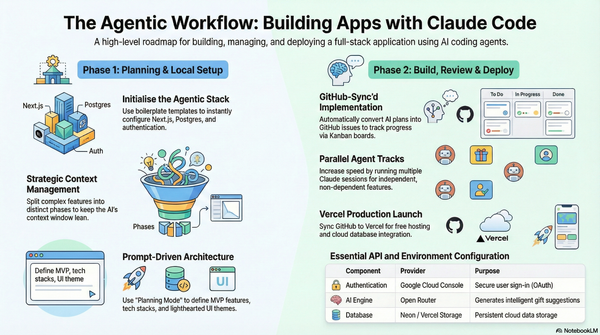The Personal MBA: A Detailed Briefing

This document provides a comprehensive review of the key themes and concepts presented in Josh Kaufman's The Personal MBA, 10th Anniversary Edition. It highlights the book's core philosophy, structure, and most important takeaways, utilizing direct quotes for emphasis.
Core Philosophy
Kaufman champions the idea that business success hinges on understanding fundamental principles rather than memorizing an overwhelming amount of information. He presents these principles as "mental models" – simplified representations of how the world works – which readers can use to make better decisions.
"Mental models are concepts that represent your understanding of how something in the world works."
Kaufman argues against the necessity of an MBA degree, suggesting that individuals can achieve success through self-directed learning, focusing on practical application over theoretical knowledge.
"To improve your business skills, you don't need to learn everything there is to know – mastering the fundamentals can take you far."
Book Structure
The Personal MBA is structured around five core parts of every business:
- Value Creation: Identifying and fulfilling needs and desires people are willing to pay for.
- Marketing: Attracting attention and building a relationship with your target market.
- Sales: Converting prospects into paying customers.
- Value Delivery: Making sure your customers are satisfied with what you deliver.
- Finance: Using and managing money effectively.
Each section is further broken down into specific mental models, covering a wide range of topics.
Key Themes and Concepts
1. Value Creation
- Twelve Standard Forms of Value: Kaufman outlines twelve common ways businesses create value, including products, services, shared resources, subscriptions, and more. Understanding these forms helps entrepreneurs identify their unique offering and value proposition.
- Prototyping and Iteration: Kaufman emphasizes the importance of testing assumptions early and often. Prototyping and iterating allows businesses to quickly refine their offerings and minimize risk.
- Trade-offs: Every decision involves trade-offs. Understanding the inherent compromises involved in different choices helps entrepreneurs make more informed decisions.
"Every minute of every day, you and the people around you are making Trade-offs."
2. Marketing
- Attention: In a world overflowing with information, grabbing and holding the attention of your target market is crucial.
- Receptivity: People only pay attention to what they care about. Marketers must understand their audience's needs and tailor their messages accordingly.
- Remarkability: To stand out, your offering must be noteworthy and easily shareable.
- Permission: Building a relationship with potential customers requires earning their trust and permission to communicate with them.
"Advertising is the tax you pay for being unremarkable." – Robert Stephens
3. Sales
- Trust: Building trust is essential for closing deals. Customers need to believe that you understand their needs and can deliver on your promises.
- Addressing Objections: Learn to effectively handle objections and concerns by providing clear information, guarantees, and risk-reversal mechanisms.
- Negotiation: Effective negotiation involves finding common ground, understanding your leverage, and being willing to walk away from a bad deal.
"People don't like to be sold, but they love to buy." – Jeffrey Gitomer
4. Value Delivery
- Quality: Meeting customer expectations is essential for repeat business and positive referrals.
- Throughput: Efficiently managing your resources and processes ensures timely delivery and customer satisfaction.
- Systemization: Creating repeatable systems and processes allows businesses to scale and maintain consistent quality.
"A business is a repeatable process that makes money. Everything else is a hobby." – Paul Freet
5. Finance
- Profitability: Understanding your costs, pricing effectively, and managing cash flow is crucial for long-term success.
- Sufficiency: Aiming for "enough" profitability allows you to sustain your business and pursue your goals without constant financial pressure.
- Valuation: Knowing how to assess the worth of your business helps you make informed decisions about investments and future growth.
"Your business does not have to bring in millions or billions of dollars to be successful. If you have enough Profit to do the things you need to do to keep the business running and make it worth your time, you're successful, no matter how much revenue your business brings in."
6. Mind and Behaviour
- Mental Simulation: Visualizing potential outcomes helps you anticipate challenges and make better decisions.
- Inhibition: Learning to control impulsive behaviour is essential for focusing on long-term goals.
- Status Signals: Understanding how social status influences behaviour helps you market and sell more effectively.
"We don't see things as they are. We see things as we are." – Anaïs Nin
7. Systems
- Gall's Law: Complex systems evolve from simpler systems that work. Start small and iterate to build robust and sustainable systems.
- Stocks and Flows: Analysing the movement of resources in your business helps identify bottlenecks and optimize processes.
- Resilience: Building redundancies and anticipating potential problems helps your business weather unexpected challenges.
"A danger foreseen is half avoided." – English Proverb
8. Working With Yourself
- Monoidealism: Focusing on a single task at a time maximizes productivity and minimizes distractions.
- Habits: Building positive habits automates desired behaviours and frees up mental energy for other tasks.
- Decision-Making: Making decisions quickly and decisively helps you move forward and avoid analysis paralysis.
"We are what we repeatedly do. Excellence, then, is not an act, but a habit." – Will Durant
Conclusion
The Personal MBA offers a practical and accessible framework for understanding the fundamentals of business. By mastering the core mental models presented in the book, individuals can equip themselves with the knowledge and skills necessary to achieve their entrepreneurial goals, regardless of their background or formal education.
This document is just a starting point – for a deeper understanding of the concepts and how to apply them to your own life and work, it is highly recommended to read the full text of The Personal MBA.
Click here to purchase on Amazon today!

